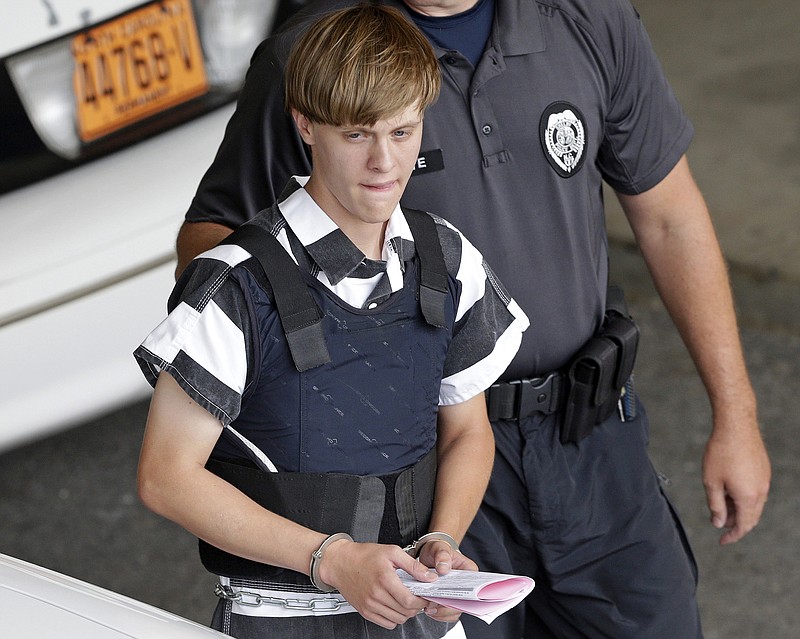If we're lucky, we'll have heard the last of Dylann Storm Roof after his sentencing next month for the June 2015 slaying of nine black parishioners who had the temerity to want to study the Bible unmolested in a historic church in Charleston, S.C.
File him away with the Bull Connors and the Byron De La Beckwiths and those other relics of another era when Americans - actual persons born in the most prosperous and opportunistic country on Earth - believed it was just good sport to bother, maim and kill people because of their skin color.
Roof, in his internet-filled delusion, said he felt compelled to act because of the way blacks treated whites.
The young white supremacist apparently didn't get out much. If he searched a little, but only a little, he could see not only blacks treating whites badly but also blacks treating blacks badly, whites treating whites badly and whites treating blacks badly. And that doesn't include the browns, yellows and reds. Lord knows, there's enough hate to go around.
We'd hoped some of that hate might lessen when the last Confederate flag was lowered at the South Carolina statehouse last year. And some wanted to take the symbolism even further, to remove every vestige of every person who served on the Confederate side of the Civil War, and to denigrate even the presidents of the United States who once owned slaves.
We should have known better.
Hate will never be removed by tearing down statues, removing faces from currency and taking names off annual dinners. It won't be because it wasn't learned with such swiftness. Instead, it was, as character Lt. Joseph Cable sang in the 1940s Rodgers and Hammerstein music "South Pacific," "carefully taught."
"You've got to be taught to hate and fear," he sings, "you've got to be taught from year to year, it's got to be drummed in your dear little ear, you've got to be carefully taught.
"You've got to be taught to be afraid, of people whose eyes are oddly made, and people whose skin is a different shade, you've got to be carefully taught.
"You've got to be taught before it's too late, before you are 6 or 7 or 8, to hate all the people your relatives hate, you've got to be carefully taught."
And while it may be too late for Dylan Roof, as far as escaping the proper punishment for his crimes, it's never to late to unlearn hate. In this case, the 37th president, Richard Nixon, hardly a paragon of virtue, nevertheless offers some sound advice.
"Always remember," he said just before leaving the White House, "others may hate you, but those who hate you don't win unless you hate them, and then you destroy yourself."
